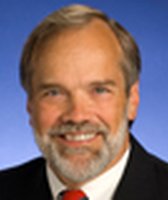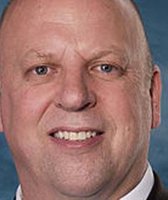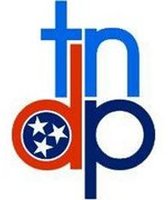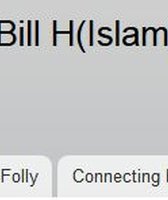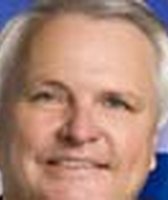Stand up for the facts!
Our only agenda is to publish the truth so you can be an informed participant in democracy.
We need your help.
I would like to contribute

Tennessee Gov. Bill Haslam has presided over tax cuts and an increase in the rainy-day fund, but the libertarian Cato Institute still gave him a 'D.'
NASHVILLE – We, too, were surprised when the libertarian Cato Institute came out with its biennial Fiscal Policy Report Card on America’s Governors for 2012 and gave Tennessee’s Republican governor, Bill Haslam, a "D" grade.
Wasn’t this the governor who this year began phasing out Tennessee’s inheritance tax over three years, cut the state sales tax on grocery food and increased the state’s reserve fund?
"I was kind of surprised," Haslam said. "We are a state with the third or fourth lowest tax rate per capita and bottom two I think in debt per capita. We’ve increased our Rainy Day Fund, we’ve cut taxes, we’ve raised our bond rating. I kind of thought that’s what conservative fiscal policy was."
Yet Cato’s report gave him a D, based the fiscal policy score of 43 it assigned him, ranking him 40th among 48 governors. (Cato excluded Mississippi because Gov. Phil Bryant just took office and Alaska due to peculiarities in its oil-based budget.) Haslam was the lowest-scoring Republican and, in Cato’s view, even 13 Democrats ranked higher.
We took a deeper look at the Cato report, but decided not to issue a PolitiFact Truth=O-Meter ruling because Cato’s grading system is, by its nature, subjective even though the numbers in its methodology appear sound.
The institute says that it "grades governors on their fiscal policies from a limited-government perspective…on their taxing and spending records. Governors who have cut taxes and spending the most receive the highest grades, while those who have increased taxes and spending the most receive the lowest grades."
In other words, Cato’s focus is narrowly based on spending and taxes, and does not take into account low debt, high bond ratings and other indicators of sound fiscal policy. Nor does it take into account whether a state’s tax burden is already low; only whether it’s lower or higher than it was.
Cato is one of scores of organizations that rate public officials based on how their actions align with the group’s policy positions. Thus, a governor who receives an A by one group might receive an F from another group.
The spending variables Cato uses are the average annual percentage change in per-capita general fund spending proposed by the governor and the actual change. The tax-rate factors measure changes in the top personal-income, top corporate-income, general sales-tax and cigarette tax rates approved by the governor.
By Cato’s methodology, Haslam approved no changes in those four tax rates; it gave him no credit for the sales-tax cut on food because his proposal didn’t reduce the overall sales-tax rate. And it gave him no credit for the inheritance tax phase-out because inheritance tax is not a factor in Cato’s formula.
What really did Haslam in, according to Cato, was the finding that "state general-fund spending rose about 14 percent during Haslam’s first year in office."
Using Cato’s methodology and the figures it relies on (numbers reported by the state to the National Association of State Budget Officers), Tennessee’s general fund spending increased by 13.9 percent, from fiscal year 2011 to fiscal year 2012, or 13.1 percent after adjusted for population growth. The calculation measures the increase from actual general-fund appropriations in FY 2011 to estimated general fund appropriations in FY 2012.
But the Haslam administration contends that is not an "apples-to-apples" comparison because actual numbers are typically lower than budget estimates. Indeed, when state budget planners put together the 2011 budget (under former governor Phil Bredesen), they estimated general fund appropriations would total between $10.5 billion and $10.7 billion. But the actual number (on which Cato’s calculations are based) was just under $10 billion.
Haslam said that when federal stimulus funding for education expired, he made the policy decision to maintain full funding for K-12 public education, under the state’s Basic Education Program formula.
"What we did that other states didn’t was we continued to fund (not cut) K-12 education," the governor said. "My rationale there was, in per-capita funding (for schools) we were about 46th or 47th and I didn’t think we could cut K-12 education. So if you look at most of the state dollar increase it went to education when other states were cutting it."
Another factor: Tennessee state tax revenue increased from the recession, providing more revenue from existing taxes without new taxes or raising existing tax rates. Haslam and the state legislature decided to use the rising revenues -- which still have not returned to pre-recession levels -- to maintain some state programs that would have been reduced with the end of federal stimulus funding. And they decided to cut the inheritance tax and the sales tax on grocery food and increase the state’s reserve fund, for when there’s another shortfall.
Haslam has also built the rainy-day fund, from $257 million to an expected $356 by next June. "We think that’s indicative of responsible, conservative fiscal management," said press secretary David Smith.
It’s up to Tennesseans to decide whether those choices were better than the options that would have gotten Haslam a higher grade on the Cato ranking: cutting spending exclusively.
Cato also took Haslam to task for approving an increase in the state hospital tax from 3.5 to 4.5 percent of hospital net income, and for "leading the charge to increase taxes on Internet sales."
Cato’s analysis in both areas lacks context.
Haslam did approve the hospital tax increase but it was proposed and pushed by the Tennessee Hospital Association as a means to raise state revenue for TennCare, which would draw down additional federal Medicaid funding -- about $2 in federal money for every $1 generated from the tax increase.
And Haslam has testified before Congress in favor of federal legislation clearing the way for states to collect taxes on Internet and mail-order sales by out-of-state companies to residents of their states. Haslam and other governors contend that’s not a tax increase because consumers already legally owe the taxes even if the businesses don’t collect it for the state. Consumers who don’t pay the tax directly to the state on their online purchases may think otherwise.
In addition to all this, the governor accurately cites other national comparisons that show Tennessee has the lowest per-capita state debt among all 50 states. And on Tuesday, Oct. 23, the Tax Foundation, an independent tax-analysis organization, reported that Tennessee has the third lowest state and local tax burden among the states -- behind oil-rich Alaska and sparsely populated South Dakota.
Our Sources
"Fiscal Policy Report Card on America's Governors: 2012," Cato Institute, Oct. 9, 2012
Email from Chris Edwards, director of tax policy studies at the Cato Institute and author of "Fiscal Policy Report Card on America’s Govenrors: 2012," Oct. 19, 2012
Remarks by Gov. Bill Haslam during press availability, Oct. 9, 2012
Email from David Smith, press secretary to Gov. Bill Haslam, Oct. 19, 2012
"Inheritance tax phaseout, sales tax cut on grocery food en route to governor," The Commercial Appeal, April 27, 2012
"Fiscal Survey of the States: Archives," National Association of State Budget Officers, Spring 2011, Fall 2011, Spring 2012
Fiscal Year 2011-2012 Budget Publications, Tennessee Department of Finance & Administration
"Tennessee hospital tax raised and extended," The Commercial Appeal, April 28, 2011
"Haslam tells Congress that online sales tax not a new tax," The Commercial Appeal, July 24, 2012





